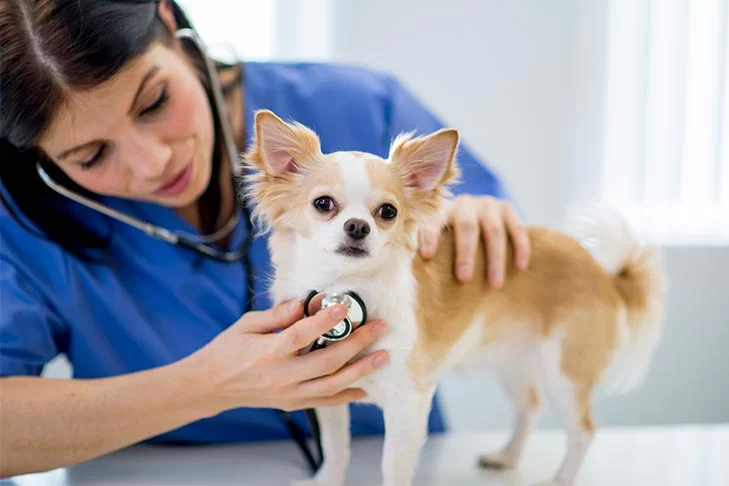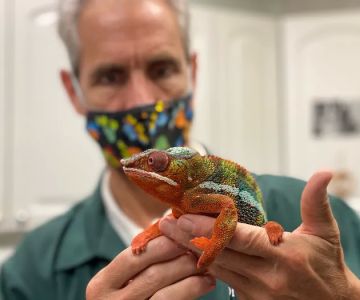What to Expect During Your Pet’s Annual Checkup
As a pet owner, one of the most important things you can do for your furry companion is ensuring they have regular checkups with a trusted veterinarian. Just like humans, pets need regular health exams to maintain their overall well-being. Your pet’s annual checkup is an essential part of their healthcare routine, and understanding what to expect can make the experience more comfortable and informative for both you and your pet. So, let’s walk through what typically happens during a pet's annual checkup!
1. Initial Consultation and Health History Review
When you arrive at the vet’s office, the first step in your pet’s annual checkup will be a consultation with the veterinarian. During this time, the vet will review your pet’s health history. They’ll ask about any changes in behavior, eating habits, or activity levels, and inquire about any concerns you might have noticed at home. This is also a good time to mention anything unusual you’ve observed, such as changes in weight, coat condition, or bathroom habits.
It’s important to keep a record of your pet’s health and behaviors throughout the year so you can provide the vet with a clear picture of what’s going on. If your pet has any chronic conditions or previous health issues, the vet will want to track these as part of their ongoing care plan.
2. Comprehensive Physical Examination
Next, the veterinarian will conduct a thorough physical examination of your pet. This is where the vet will check all the major systems in your pet’s body to make sure everything is functioning properly. Here’s what the vet will typically look for:
- Eyes and Ears: The vet will check for signs of infection, redness, or discomfort in your pet’s eyes and ears. Some pets may suffer from ear infections, especially dogs with floppy ears.
- Skin and Coat: A healthy coat and skin are indicators of good health. The vet will check for any signs of allergies, flea infestations, or dry patches.
- Teeth and Gums: Oral health is essential. The vet will examine your pet’s teeth and gums for signs of plaque buildup, gum disease, or loose teeth.
- Heart and Lungs: Using a stethoscope, the vet will listen to your pet’s heart and lungs to check for any abnormal sounds or issues with breathing.
- Abdomen: The vet will palpate your pet’s abdomen to ensure there are no signs of discomfort, bloating, or abnormal masses.
- Limbs and Joints: The vet will check your pet’s limbs for any signs of stiffness or discomfort, which could indicate arthritis or injury.
These exams can often uncover hidden issues that may not be visible to you at home, allowing for early intervention and treatment if needed.
3. Vaccinations and Preventive Care
During the annual checkup, your pet will likely receive any necessary vaccinations. Just like with humans, vaccinations help prevent serious diseases and infections. The vet will review your pet’s vaccination history and recommend any updates based on your pet’s age, lifestyle, and exposure risk. Common vaccines include:
- Rabies
- Distemper
- Parvovirus
- Leptospirosis
If you have a dog that spends a lot of time outside or in contact with other animals, additional vaccines may be recommended, such as those for Lyme disease or kennel cough. The vet will also discuss flea, tick, and heartworm prevention, offering recommendations for treatments suited to your pet’s needs.
4. Blood Tests and Lab Work
For pets that are a little older or have specific health concerns, the vet may recommend blood tests or other laboratory work during the annual checkup. These tests provide valuable insights into your pet’s internal health and can help detect issues like kidney or liver disease, thyroid problems, and diabetes. The vet might also recommend a urinalysis, stool sample check, or screening for parasites.
Regular blood tests are particularly important for older pets because they can catch problems early, allowing for more effective treatment. For younger pets, these tests may not be necessary every year, but they can be a good idea for preventative health.
5. Weight Check and Diet Consultation
Maintaining a healthy weight is crucial for your pet’s overall health. During the annual checkup, the veterinarian will weigh your pet and assess their body condition. If your pet is overweight or underweight, the vet will offer suggestions for improving their diet and exercise routine. Obesity is becoming more common in pets, and it can lead to various health issues such as diabetes, joint problems, and heart disease.
The vet may also discuss your pet’s diet, recommending adjustments to ensure they’re getting the right nutrients. It’s essential to provide a balanced diet that’s appropriate for your pet’s age, breed, and activity level. The vet can help you navigate food choices and feeding schedules.
6. Behavioral Concerns and Stress Management
Annual checkups are a great opportunity to discuss any behavioral issues you may have noticed in your pet. Whether your pet has separation anxiety, is more aggressive than usual, or is showing signs of stress, the veterinarian can offer advice on managing these issues. In some cases, the vet might recommend referral to a behavioral specialist or trainer.
Additionally, if your pet is particularly anxious during vet visits, you can ask the vet for advice on how to make the experience less stressful for them. Some simple changes, such as desensitizing your pet to the vet’s office or using calming pheromone sprays, can make a world of difference.
7. Pet Dental Care
Dental health is another critical aspect of your pet’s well-being. Many pets suffer from dental disease, which can lead to painful infections, tooth loss, and other complications. The veterinarian will assess your pet’s teeth and gums, and they may recommend professional dental cleanings if necessary.
If your pet has bad breath, excessive drooling, or difficulty eating, these could be signs of dental problems. The vet can provide tips on home dental care, such as brushing your pet’s teeth or offering dental treats and toys to help prevent plaque buildup.
Your pet’s annual checkup is a great time to stay on top of their overall health and well-being. Whether it’s catching potential issues early, maintaining preventive care, or getting advice on behavior and diet, these yearly visits are essential for ensuring a long and happy life for your pet.
If you’re looking for the best veterinary services for your pet, be sure to check out Hidden Brook Veterinary for expert care and personalized service.












